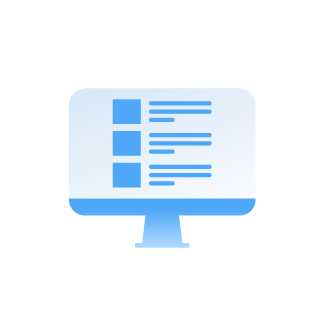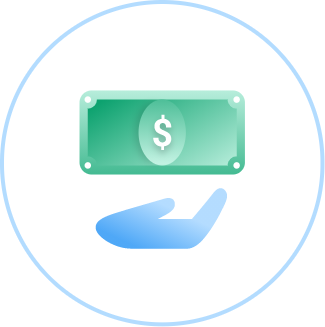
House prices are sky-high these days, and this reality is dashing the hopes of owning a home for many, particularly for first-time homebuyers. You’ll need a lot of money upfront and likely incur significant debt to bring your dream to life. But, in spite of the high cost, it’s still a smart move to buy a house because it lays the foundation for a solid financial future.
Knowing how much money it will take and breaking it down into individual costs helps the costs appear more realistic and feasible. What’s more, if you know the amount needed at every stage of ownership, you’ll be ready when the time comes, which makes the buying process easier. So, read on to find out how much money you will need to buy a house, including how to get a down payment for a home, from our rundown of the main costs below:
A down payment is the portion of the total cost of the home that you pay upfront. Mortgage lenders have different percentage requirements for the down payment, but typically, the more you put down, the less you’ll need to borrow. You’re also likely to score a lower interest rate and lower monthly payments when you put down a bigger portion than asked because you present a lower risk of defaulting on your loan to the lender.
The down payment is the most significant cost in the homebuying process, and the biggest hurdle for first-time homeowners seeking a mortgage is how to get a down payment for a home. The average down payment requirement is 13 percent. This is to say that you’ll need to pay 13 percent of the value of the house upfront. Nevertheless, there are mortgages with no down payment requirements, like VA loans and USDA loans, and others with low down payment mortgage options, like FHA loans and Fannie Mae and Freddie Mac mortgages.
While it helps to have a large amount upfront, you must also think about other costs that will come up. Don’t put too much into the down payment that you’re too pressed to cover other homeownership expenses. In addition, a lender will want to see that you have some cash reserve that you can use for your mortgage payments later on in case of cash flow inconsistencies.

Earnest money is the money you pay to show your commitment to buying the home. It’s typically 1-2 percent of the agreed-upon purchase price, and you’ll be asked to deposit it within a day or two after signing the purchase agreement. The earnest money is not lost; it goes toward your payment during closing. So, when calculating how much money you will need to buy a house, include a small percentage of the property value to demonstrate your interest.
Closing costs are a summation of all fees charged to you by your lender and other parties involved in the entire mortgage process. They include fees charged for title search, title insurance, application, underwriting, credit report, appraisal, and origination. Pay attention to what each lender charges for underwriting and origination to see if you might save some money. Closing costs range between 2 percent and 5 percent of the mortgage loan principals and come second to the down payment in size. Therefore, as you figure out how to get a down payment for a home, factor in the significant closing costs.
Nevertheless, note that closing costs do not encompass all that you’re to pay for on the closing day. There are still other expenses, called prepaids, that you’ll be asked to pay. They may include property taxes, homeowners insurance premiums, and the interest due for the days remaining to the end of the month. For example, if you close on the 15th, you will prepay the interest for the days remaining up to the last day of that month.
Additionally, note that you could ask the seller to pay for a portion or all of your closing costs. However, they are less likely to oblige if the real estate market is competitive.
In your excitement at the prospect of owning a house for the first time and working to find out exactly how much you will need to buy a house, remember that you’ll still need money to move. Set aside a good amount to cover moving expenses. The cost of moving depends on the distance you’re moving, the size of your home, the stops to make in-between, and the weight of your items. The average cost of a local move is $1,400, while a long-distance move costs $3,500 on average. But, this does not include the cost of lodging and airfare that may come with out-of-state or cross-country moves. To your moving costs, add the smaller moving expenses like packing boxes, bubble wrap, and packing tape.
It’s imperative to find out how much money it will take to bring your dream to life. Getting this figure in its totality is not meant to discourage you but to create a realistic picture of what’s needed so that you can prepare adequately and go through the homebuying process seamlessly. Your exact figures will depend on the mortgage loan amount. For more information or help calculating costs, visit our Mortgages page.

Answer a few questions


View competitive offers instantly


Request a loan


Get approved

Answer a few questions


View competitive offers instantly


Request a loan


Get approved